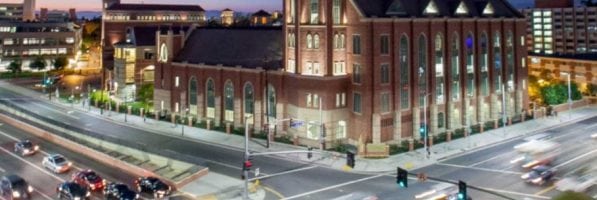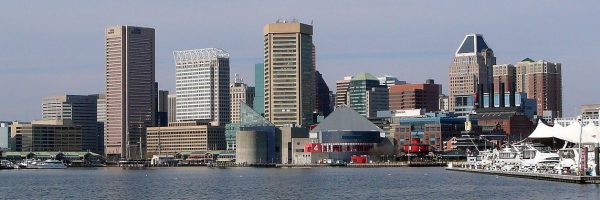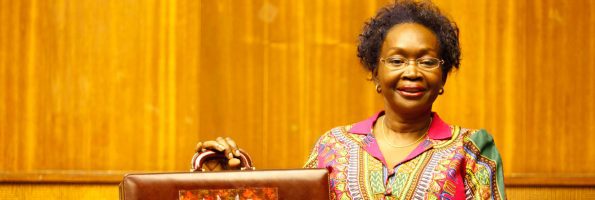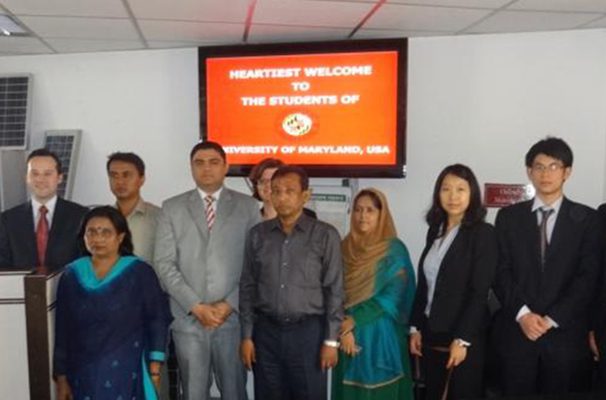The Best Energy Industry MBA Programs in the U.S.

With the current shift in global economics that coincides with climate change, business schools have seen the benefit of educating students toward a sustainable future. Whether through influencing public policy, investing wisely in carbon reduction technologies, or developing businesses that serve to adjust to global warming, MBA grads with a focus within the energy industry have limitless career prospects.
The Best Energy Industry MBA Programs in the U.S.

The University of California, Berkeley Haas School of Business‘ Bay Area location (a center for innovation in sustainability) make it a clean energy industry leader. With an interdisciplinary approach that combines engineering, public policy, and law, Berkeley Haas MBA students have access to such initiatives as Cleantech to Market (C2M). This partnership between grad students, industry professionals, and researchers offers an annual symposium presenting the newest trends in clean technologies.
In C2M, professionals in such arenas as energy generation, storage, grid technology, and water purification guide students through past solutions. Students integrate their curriculum into real world solutions with the help of these professionals and leading researchers.

Cornell’s SC Johnson Graduate School of Management also offers a wealth of opportunities in the development of sustainable solutions for MBAs with the school’s immersion program, the Center for Social Enterprise. After receiving a sizable endowment in 2002, researchers and business leaders formed the SC Johnson Professorship in Sustainable Global Enterprise. Recently ranked 2nd overall by Bloomberg Businessweek, the sustainability curriculum at Johnson has achieved wide acclaim.
In addition, Johnson offers an Environmental Finance and Impact Investing Fellowship. With projects sponsored by corporate and government entities, students receive opportunities to work with the World Bank, Barclays, and The Water Initiative to address pressing issues in development and the increasing demand to find alternative energy sources.

UNC’s Kenan Flagler Business School offers an MBA that they consider “unique among major business schools.” The program, which exhibits a marked emphasis upon ROI, focuses on the energy value chain, and the intersection of oil and gas usage, renewables, and petrochemicals.
This degree focuses primarily on training future leaders in corporate sectors, power generation, renewable energy, investing firms, and consulting firms specializing in energy.

MIT’s Sloan School of Management takes an exemplary role in leadership development for the sustainable energy industry. According to Sloan’s Sustainability Initiative, the school “empowers leaders to act so that humans and nature can thrive for generations to come.” With a mission that includes a sustainability certificate, partnerships with NGOs and government agencies, and an ongoing lecture series, MIT Sloan offers a strong foundation in cleantech development.
In a recent roundtable, experts in renewable energy supply chain discussed potential solutions. These include wind farms and solar power for underserved populations.
“When you’re inside a startup and talking to your colleagues all the time, it’s easy to lose sight of the big picture,” says Sandhya Murali, a recipient of the Sustainability Certificate. “Being able to talk with experts in the field and share ideas with veterans in the industry was extremely helpful.”
Murali, ’15, is the CEO of the Solstice Initiative, which provides solar energy to communities in every economic strata.

Finally, University of Pennsylvania’s Wharton School of Business is at the forefront of energy efficiency, offering an MBA major in Business, Energy, Environment and Sustainability. Combining a focus in tech, regulation, finance, and business modeling trends, this degree prepares MBAs for leadership roles in energy, clean-tech investment, energy banking, consulting, government, and the sustainable non-profit industry.
Courses include Energy Markets and Policy, Energy Finance, Environmental Management, Law and Policy, Social Impact Marketing and Energy Law.
In addition, there is a dual degree option for Wharton MBAs. In which, students can combine an MBA with a Master in Environmental Studies for career opportunities in energy management.
Mihaylo Turns 10, USC Marshall Interviews, and More – Los Angeles News

It’s been a busy week, but we’ve caught up with a few of the Los Angeles business school stories you need to know.
USC Marshall Professor on the Economics of Migrant Populations – USC Marshall News & Events
USC Marshall Professor of Finance and Business Economics Sandra Rozo recently gathered a group of scholars for a session on an issue with global resonance—the refugee crisis.
Rozo organized the ‘Conference on the Impacts of Refugees in Hosting Economies’ in order to address the effects of forced migration upon the social, economic and political climates in various countries.
The transformation of certain Turkish communities that experienced an influx of Syrian refugees was just one of the positive impacts that Rozo and her colleagues presented. In a collaboration with fellow economics professors, Rozo explored how the resettlement of over 3 million Syrian refugees resulted in measurable change in the nation’s economy.
The oil and gas industries, for example, experienced growth as a result of increased usage. A notable increase in new business formation also arose from the migration, as Syrians new to the country saw opportunity in partnering with Turkish entrepreneurs. The researchers discovered that there was a marked positive effect on the construction, hotel and restaurant industries after the migration.
Rozo points that the positive outcomes of migration must be explored along with the sometimes enormous negatives. “The media tend to focus on the negative but the effects of displaced populations cannot be generalized in one way or another. We’re asking what the impacts are so we can ameliorate the negative and amplify the positive.”
Keynote speaker George Borjas of Harvard’s Kennedy School opened the conference, and Paolo Verme of the World Bank delivered the closing address.
You can read more on the research here.
Mihaylo College’s Landmark Home Turns Ten – Mihaylo News
As the largest accredited business school on the West Coast of the U.S., Mihaylo Business School at Cal State Fullerton needed a building that would make a statement. The university celebrates 10 years since the completion of this landmark structure for the Mihaylo College with alumni, donors, and staff on September 28, 2018.

Steven G. Mihaylo Hall, built in ’08 / Photo via business.fullerton.edu
In 2008, the school hired internationally celebrated firm HOK to design the state-of-the-art Steven G. Mihaylo Hall. The 195,000 square-feet, $89 million building contains 10,000 students and hundreds of faculty.
The shift in the U.S. economy has been vast since the late ’00s, and the growth of Mihaylo’s programs has followed a similar trajectory.
With sustainable design elements throughout the building that minimize environmental impact, Mihaylo Hall set a high standard for future building projects across campus. The Women’s Leadership Program, Mihaylo Career Services, and a state-of-the-art trading lab are just a few of the developments that grew forth after the building’s completion. Read more about the building and its decade of success here.
USC Marshall Welcomes 9 New Faculty – MetroMBA
MetroMBA recently spoke with several of the newest members of the USC Marshall faculty, joining the business school for 2018-19.
David Bacci, a new lecturer in the Department of Business Communication, says:
“Simply stated, my teaching philosophy is to train to students to be the types of great employees I would hire. I spent 10+ years in various industries and in management. In my experience, employers will teach their employees the technical skills required to do their jobs. But employers will not teach employees how to communicate; how to show up each day; how to engage with their boss and coworkers; and how to use their soft skills to add organizational value—employers simply expect people to have these skills already developed. Given this gap, I see my role as a professor to teach students how to use their communication skills to distinguish themselves as ‘great’ amongst a sea of ‘good.’”
You can read more from our recent interviews here.
Wharton Economist, Berkeley Alum Ann Harrison Named New Haas Dean

Ann Harrison, a renowned economist and member of the faculty at the University of Pennsylvania’s Wharton School, has been named the next dean of the UC Berkeley Haas School of Business. Harrison earned her undergraduate degree from Berkeley and served as a professor in Berkeley’s Department of Agricultural and Resource Economics from 2001 to 2011.
“Professor Harrison is an accomplished administrator as well as a world-class economist who has dedicated her career to creating forward-looking policies in development economics, international trade, and global labor markets,” Berkeley Chancellor Carol Christ said in a statement announcing the appointment. “It is a great honor to welcome her back to Berkeley to become the dean of Haas, and I have no doubt that she will be a wonderful leader the institution.”
Harrison, who will begin her term on January 1, 2019, said she is thrilled to return to Berkeley and looks forward to meeting Haas students and alumni and working with its distinguished faculty and staff, according to the release from the school.
Harrison worked as director of development policy at the World Bank before joining the Wharton faculty in 2012, co-managing a team of 300 researchers and staff. In her time with the World Bank, she reformed its research fund allocation process and supervised its most important publications, including the annual World Development Report. Setting a milestone in transparency for the institution, she convinced the World Bank’s president to release all historical records on project loans.

Ann Harrison named new Haas dean
“Ann has a remarkable track record of pioneering research on trade and development, including influential studies of globalization’s effects on jobs and inequality,” Berkeley Economics Professor Maurice Obstfeld said in a statement. Obstfeld serves as chief economist at the International Monetary Fund and was a colleague of Harrison’s when she worked in Berkeley’s Agricultural and Resource Economics Department.
Princeton Professor Emeritus Sir Angus Deaton, who has known Harrison since her days as a graduate student at Princeton, praised her appointment. “Based on Ann’s experience at the World Bank, she will be an effective and much-loved manager,” said Deaton, who also holds the 2015 Nobel Laureate in Economic Sciences for his analysis of consumption, poverty, and welfare.
In addition to a Ph.D. in economics from Princeton, Harrison also holds a diplôme d’études universitaires générales from the University of Paris and is a research associate at the National Bureau of Economic Research and a member of the United Nations Committee for Development Policy. Author and editor of three books—including Globalization and Poverty and The Factory-Free Economy—Harrison is one of the most highly cited scholars globally on foreign investment and multinational firms.
Harrison replaces outgoing Dean Rich Lyons, who stepped down in June 2018 after serving as Haas dean for the past 11 years. He plans to return to teaching at Haas after completing a sabbatical. Haas Professor Laura Tyson, who has served as interim dean since Lyons’ departure, will remain in the role until January, 2019.
This article has been edited and published with permissions from our sister site, Clear Admit.
The Best of Baltimore’s Part-Time MBA Programs

Committing to graduate school can be both exciting and daunting. Earning an MBA gives aspiring industry leaders an undeniable competitive edge, but going back to school full-time can bring other areas of students’ lives to a screeching halt.
Fortunately, many schools offer part-time MBA programs that allow the flexibility to maintain their career and family commitments while still continuing education. Choosing a program that is the right fit is essential to success. That’s why we put together a rundown of the best part-time MBA programs in Baltimore metro.
Carey Business School — Johns Hopkins
The Carey Business School at Johns Hopkins recently expanded its Flexible MBA track to include more online opportunities. Students opting for the Flexible MBA generally complete their 54 credits over the course of three years. An online or online-on-campus hybrid format for students with concentrations in Leading Organizations, Financial Businesses, or Health Care Management. Students pursuing the on-campus option enroll in eight-week sessions that take place Monday through Thursday from 6-9 p.m. in the evening. Carey offers classes on both the Baltimore and Washington DC campuses. Graduates of the Flexible MBA have gone on to hold powerful positions in companies like AT&T, UBS, and World Bank.
Perdue School of Business — Salisbury University
At the Salisbury Perdue School of Business, students can complete their part-time MBA in two years. Perdue offers a 100 percent online program as well as an online-on-campus hybrid. This MBA curriculum includes access to the SAP University Alliance Program, a global network that allows students and faculty to integrate SAP technologies and resources into the classroom. Gaining this technological know-how may give graduates an immediate edge in the marketplace. The program is excellent for students looking to completely shift trades, or aspiring to pursue the business side of an ostensibly unrelated area. Perdue’s MBA does not require that applicants have an undergraduate degree in a business-related field. In fact, Perdue has embraced students with undergraduate degrees in fields like archaeology and art history.
Sellinger School of Business — Loyola University Maryland
The part-time MBA at Sellinger School of Business is designed for students already balancing full jobs. Business school students on this track take their classes in the evenings, after the work-day is finished. Selling offers hybrid and online options for those who cannot consistently make it to campus for their classes. This program is ideal for students who would like to begin their business education on their own time frame, as applicants can enroll at the beginning of any term. Sellinger boasts an emphasis on “reflections, discernment and ethical commitment,” that distinguishes the program from many others.
Merrick School of Business—University of Baltimore
The Merrick School of Business Flexible MBA upholds University of Baltimore’s emphasis on offering programs that let students continue their educations without putting their lives on hold. All of the classes in this program take place in the evening, and 50 percent of the course are offered online. Courses are offered in seven-week terms. Students in this program set their own pace, and those in different time zones are not at a disadvantage, as online courses are offered in an asynchronous format. Students in the Flexible MBA can choose a full-time or part-time course load, without notifying anyone or navigating any administrative channels.
University of Maryland R.H. Smith School of Business
Students earning their MBA through the R.H. Smith School of Business at the University of Maryland’s part-time program have the benefit of an extremely flexible pace. MBAs can finish their degree in 24 months, 28 months or they can set their own speed and take up to five years. Smith might appeal to those who wish to learn more about the international marketplace, as this MBA program integrates global experiences into the curriculum. Students can choose to attend classes on University of Maryland’s Baltimore, Washington DC, or Rockville/Shady Grove campus. This program was ranked among U.S. News & World Report’s “Best Part-time MBAs.”
Alumni Spotlight: Maria Kiwanuka, London Business School

There have been plenty of well-known, impressive and important people to graduate from the prestigious London Business School. I’m talking about folks like Timothy Kopra (a NASA Astronaut), Jean Tirole (Winner of the 2014 Nobel Prize in Economics), Ronald Boire (Former President and CEO of Brookstone) — even real-life Knights, such as Sir David Arculus (Chairman of the Board, O2) and Sir John Egan (Former CEO of Jaguar Cars, Former CEO of BAA, Chairman of Severn Trent plc). Continue reading…
Smith Students Take Micro-Grid to Scale Abroad

A group of eight students from the Robert H. Smith School of Business (including three MBAs) participated in a one-week mission to Bangladesh with the World Bank. As part of a World Bank feasibility study, the team was charged with putting together a set of possible financing strategies that would take the micro-grid model to scale. Continue reading…
